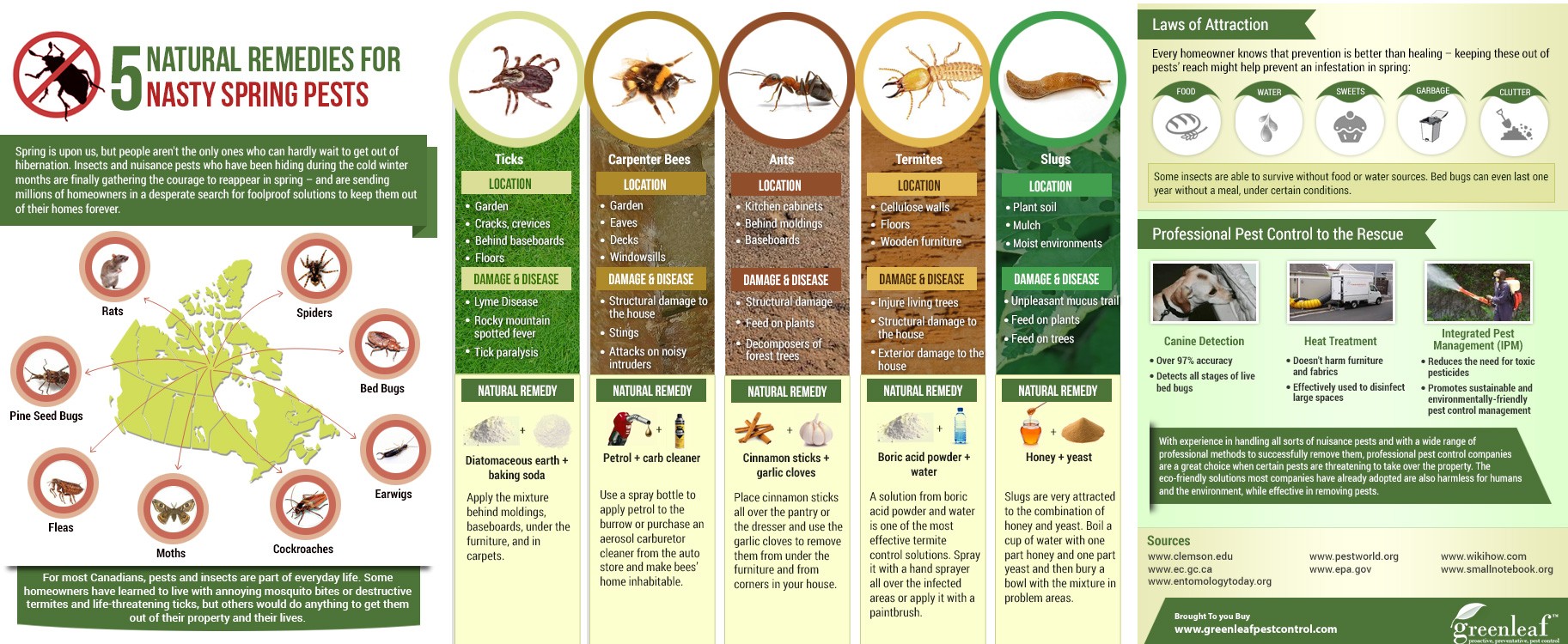Pest-Proofing Your Yard: Tips For Maintaining Outdoor Parasites At Bay
Pest-Proofing Your Yard: Tips For Maintaining Outdoor Parasites At Bay
Blog Article
Created By-Vang Espersen
Picture your yard as a sanctuary, a place of tranquility and beauty. However, the presence of outside bugs can promptly disrupt this picturesque photo. What if there were basic yet efficient means to keep these unwanted visitors at bay and secure your garden sanctuary? By complying with a couple of functional pointers and carrying out natural strategies, you can create an unified exterior area where your plants can thrive undisturbed.
Natural Insect Deterrents
To maintain pests far from your garden normally, plant aromatic natural herbs like mint and lavender. These fragrant plants not only add appeal to your garden yet additionally function as effective pest deterrents. Bugs like mosquitoes, flies, and also some garden-damaging insects are driven away by the solid scents sent out by these herbs. Just positioning them tactically around your garden can assist produce a natural barrier against unwanted bugs.
In addition to mint and lavender, take into consideration planting various other herbs like rosemary, basil, and lemongrass to additionally boost your yard's pest-proofing abilities. These natural herbs not only act as all-natural repellents but additionally have the included benefit of being useful in food preparation or crafting homemade treatments.
Strategic Plant Placement
Consider the layout of your yard and the sorts of plants you have to tactically position them for maximum pest-proofing efficiency.
Start by organizing plants with comparable resistance to bugs with each other. By doing this, you can develop an all-natural obstacle that prevents pests from spreading throughout your yard.
Furthermore, placing pest-repelling plants like marigolds, lavender, or mint near even more vulnerable plants can help shield them. Tall plants, such as sunflowers or corn, can serve as a guard for shorter plants versus insects like rabbits or ground-dwelling bugs.
Remember to leave sufficient space in between plants to improve air circulation and minimize the risk of diseases that pests might carry.
Additionally, consider growing strong-smelling herbs like rosemary or basil near vulnerable plants to confuse bugs' detects and make it harder for them to find their targets.
Reliable Bug Control Approaches
For combating garden parasites successfully, applying a multi-faceted insect control technique is necessary. Beginning by urging all-natural predators like birds, ladybugs, and praying mantises to help maintain pest populaces in check. Presenting plants that attract these helpful pests can assist in bug control. Additionally, exercising good garden hygiene by eliminating particles and weeds where pests could hide can make your garden much less welcoming to undesirable visitors.
Consider making read full article of physical barriers such as row cover fabrics or netting to safeguard prone plants from pests like caterpillars and birds. Using organic chemicals like neem oil or insecticidal soap can also work against particular parasites while being less unsafe to advantageous bugs and the setting. It's important to turn your crops each season to stop the buildup of parasite populaces that target specific plants.
Frequently examine https://troynfwnf.targetblogs.com/27087307/seeking-a-green-method-to-maintain-rodents-away-learn-about-ecologically-aware-pest-monitoring-strategies-in-this-post-for-a-lasting-strategy-to-rodent-control for indicators of pest damage so you can take action without delay. By integrating these methods and staying watchful, you can successfully regulate yard bugs and appreciate a growing, pest-free yard.
Conclusion
So, there you have it - with the ideal techniques, you can maintain pesky outside insects far from your garden and help your plants prosper.
Did you recognize that growing mint has been shown to ward off insects and various other insects, minimizing the demand for dangerous pesticides by as much as 60%?
By integrating all-natural deterrents and wise growing strategies, you can produce an attractive and pest-resistant garden oasis for you to enjoy.
